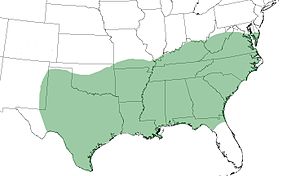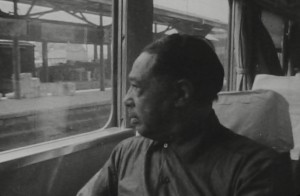One of my best friends has a southern accent. It’s strong but not overpowering—a scent, not a sauce—and I find it endearing, partly because my friend is a very dear person and partly because the way she talks reminds me of how people talk back where I come from.
 I lost my own accent (most of it, anyway) when I moved to New York, and for a long time I took it for granted that all such distinctive regional accents were destined to vanish sooner or later, most likely the former. When I first read John Steinbeck’s Travels With Charley, the 1962 book in which the author of The Grapes of Wrath described a trip across America that he took in a camper, I was struck by the oft-quoted passage in which he predicted the eventual disappearance of regional American accents, a passage that I took at the time to have the irresistible force of prophecy.
I lost my own accent (most of it, anyway) when I moved to New York, and for a long time I took it for granted that all such distinctive regional accents were destined to vanish sooner or later, most likely the former. When I first read John Steinbeck’s Travels With Charley, the 1962 book in which the author of The Grapes of Wrath described a trip across America that he took in a camper, I was struck by the oft-quoted passage in which he predicted the eventual disappearance of regional American accents, a passage that I took at the time to have the irresistible force of prophecy.
I had occasion to quote part of it six years ago in this space, but now I want to quote a different part:
One of my purposes was to listen, to hear speech, accent, speech rhythms, overtones and emphasis. For speech is so much more than words and sentences. I did listen everywhere. It seemed to me that regional speech is in the process of disappearing, not gone but going. Forty years of radio and twenty years of television must have this impact. Communications must destroy localness, by a slow, inevitable process….Just as our bread, mixed and baked, packaged and sold without benefit of accent or human frailty, is uniformly good and uniformly tasteless, so will our speech become one speech.
Like most such ripe, resonant, and perfectly plausible-sounding predictions, this one has failed to hold water. Just as the Connecticut grocery store where Mrs. T and I shop now stocks every imaginable kind of bread, all of it edible and some delectable, so does American regional speech continue to prosper well into the twenty-first century, more than fifty years after Steinbeck proclaimed its inexorable demise. Even now, folks talk different ways in different parts of the country, and many of them, like my friend, keep on talking the same way after they move to new parts. Nor do they see any reason to change just because they happen to hear different accents on TV.
Living in Manhattan as I do, I don’t normally hear southern accents in the course of an ordinary day, unless I specifically seek them out by listening to country music. But I don’t have to do that in order to imagine them, and I like knowing that they’re still routinely to be heard back where I come from, just like the train whistles that the residents of Smalltown, U.S.A., can still hear wailing in the distance at odd intervals throughout the day and night, even as I heard them throughout my boyhood.
 Duke Ellington liked train whistles, too, as you can hear for yourself in Daybreak Express, his 1933 musical portrait of an express train, and as Richard O. Boyer recorded for posterity in The Hot Bach, his 1944 New Yorker profile of Ellington:
Duke Ellington liked train whistles, too, as you can hear for yourself in Daybreak Express, his 1933 musical portrait of an express train, and as Richard O. Boyer recorded for posterity in The Hot Bach, his 1944 New Yorker profile of Ellington:
Ellington always feels that he has found sanctuary when he boards a train. He says that then peace descends upon him and that the train’s metallic rhythm soothes him. He likes to hear the whistle up ahead, particularly at night, when it screeches through the blackness as the train gathers speed. “Specially in the South,” he says. “There the firemen play blues on the engine whistle—big, smeary things like a goddam woman singing in the night.”
For those of us who miss and revere the lost worlds of our youth, such sounds, whether heard or remembered, are a comfort and an inspiration. “The memory of things gone is important to a jazz musician,” Ellington told Boyer. “Things like the old folks singing in the moonlight in the back yard on a hot night, or something someone said long ago.” Or the midsummer crickets that I hear in my mind’s ear whenever I listen to my friend talking about anything at all.


